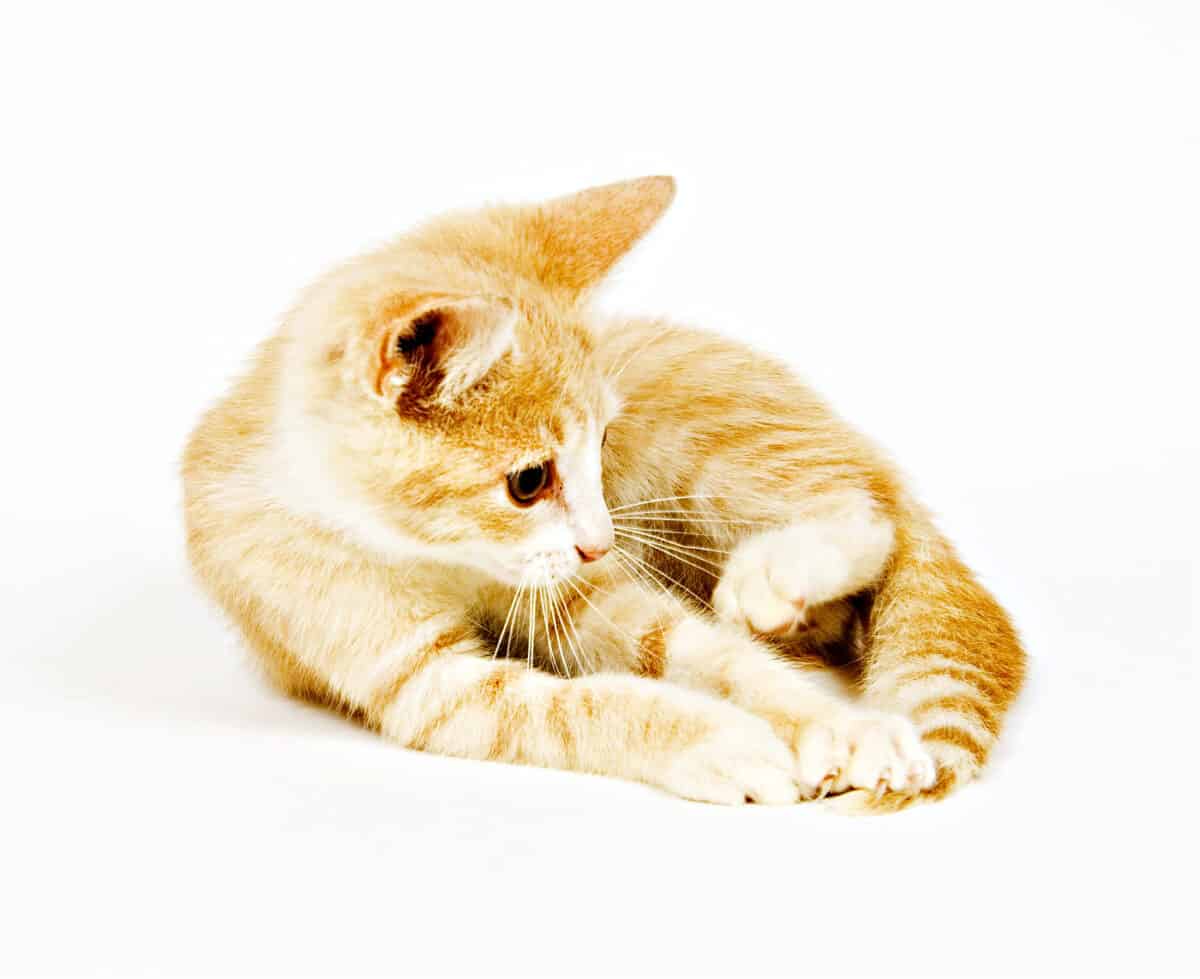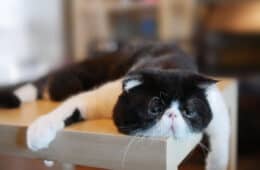Does your kitten have you dizzy watching them spin in pursuit of their own tail? Wonder no more! There's often more than meets the eye for this behavior. Could it be a simple cat amusement, or should you be alarmed?
In this article, we'll guide you through the different types of tail-chasing behaviors in cats. From harmless fun to possible signs of distress or health issues - we'll help you decode what your furry friend might be trying to communicate.
Your pet's well-being is crucial, and understanding their behavior can make a world of difference!

Understanding Tail-Chasing: Is It Just Fun Or A Sign Of Trouble?
Here's the deal - tail-chasing in cats is not just a comedic act. It's an array of behaviors that, at times, might even warrant your concern.
Indeed, the sight of your kitten or cat entranced in a merry-go-round chase after their own tail can be quite amusing. However, as enchanting as it might seem, this peculiar conduct can sometimes hide more grave implications.
As a devoted cat owner, understanding the 'why' behind your feline's tail-chasing antics is crucial. It's not just about unraveling a feline mystery. It's about ensuring their physical and mental well-being. So, let's take a closer look at tail-chasing behavior, and discover what it truly means!
The Joy Of Tail-Chasing: A Furry Game Of Tag!
Believe it or not, your kitty's tail-chasing extravaganza might be a fun game! Picture this - your kitty comes with a built-in playmate, their fluffy tail!
Here's the secret - cats are natural-born hunters. Their play sessions, even those involving their tail, are a way to hone these innate hunting skills. It starts young, with kittens pouncing on anything that moves - or sometimes doesn't. This includes objects of varying sizes, and yes, their own tails too!
While this playful streak might mellow as your cat grows, some felines remain forever young at heart. Their playful spirit doesn't wane, and their tail continues to be an irresistible moving target.
In such cases, there's little cause for concern, just ensure that your own fingers don't get mistaken for the playful tail!
This is what typical playful tail chasing looks like:
When Tail-Chasing Turns Into A Concern: Recognizing Pain And Discomfort
However, not all tail-chasing is fun and games. Sometimes, it's a distress signal. When a cat is experiencing discomfort or pain, it tends to pay extra attention to the affected area. This could mean licking, scratching, biting, or in the case of tail troubles, chasing their tail.
So, if your cat suddenly seems fixated on its tail, it's time to consult your vet. The discomfort could be a result of various tail-related conditions, from an abscess to Stud's Tail Syndrome. Remember, your vigilant eye can make all the difference!
SIGN UP FOR THECATSITE'S EMAIL UPDATES >
When Stress Or Boredom Leads To A Tail-Chasing Ritual
Stress or boredom can also push your cat into a seemingly endless cycle of tail chasing. Some cats can even develop an obsession with their tails, showing excessive licking, biting, and chasing.
What's the first step if you suspect stress or boredom? Ensuring your cat's health. Any behavioral change might signal underlying medical issues. Even if you're convinced their tail is alright, a vet checkup is always a good idea to rule out other systemic conditions.
Once medical issues have been ruled out, try Six Strategies To Reduce Stress In Cats. It won't happen overnight, but once you find the right way to address the problem of stress, your cat will be less likely to attack its own tail.
If stress isn't the problem, boredom may be. Environmental enrichment is the key phrase here. Provide your cat with a more stimulating home environment where he or she can find forms of entertainment that do not involve the tail. You can find some great ideas in our article: Beating Boredom - What Indoor Cat Owners Need To Know.
The Tail-Chasing Mystery: Is it Playful or Something More?
Figuring out whether the tail chasing is just harmless playfulness or an actual problem isn't always easy. Here are a few questions to ask yourself:
Consider these questions to gain insights:
🐾 How old is your cat? Kittens engaging in tail-chasing is perfectly normal. Even in older cats, a playful nature or the tendency to chase objects may keep the occasional tail chase alive.
🐾 Has there been a recent change in behavior or frequency? Any sudden alterations could be a signal of an underlying medical issue or heightened stress levels. Trust your instincts and reach out to your vet if you sense something amiss.
🐾 What's the atmosphere during playtime? Is your cat relaxed and playful while chasing its tail? Is there gentle biting involved? Or does it escalate into growling, hissing, or aggression? While playfulness can sometimes spiral into overexcitement, signs of genuine aggression warrant further attention.
As always, if you're not sure, talk to us about it! Post about your tail-chasing cat in the cat behavior forums. Try to capture the behavior on video or in pictures and share those as well. It would help those of our members who are more experienced with cats to assess what's going on.
SIGN UP FOR THECATSITE'S EMAIL UPDATES >
Note: We may get commissions for purchases made through links on this page.




11 comments on “Why Does My Cat Chase Its Own Tail? Let’s Find Out!”